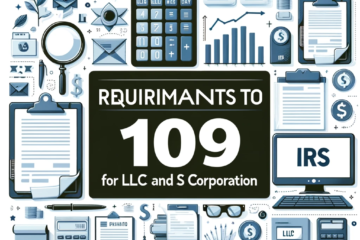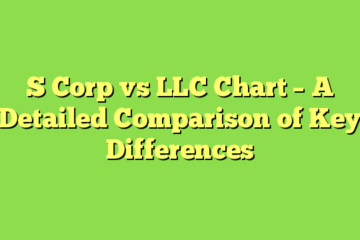In the dynamic landscape of real estate investment, the concept of transferring rental property to a Limited Liability Company (LLC) has gained significant traction. This strategic move, fueled by recent legal and tax reforms, offers property owners a unique blend of liability protection, tax benefits, and enhanced business organization.
As property investment continues to evolve, understanding the nuances of such a transfer becomes critical for investors seeking to optimize their assets in today’s market.
The process of transferring rental property to an LLC involves a series of methodical steps, each designed to ensure legal compliance and financial efficiency. The core benefits of this transition lie in limiting personal liability and leveraging tax advantages. However, it’s not without its complexities, such as potential impacts on existing mortgages and the need for careful planning regarding property ownership structure. Recent legal changes and market trends further underscore the need for a nuanced approach, tailored to the specific circumstances of each property owner.
Why Set Up an LLC for My Rental Property Business? (Rocket Lawyer)
Setting up an LLC for your rental property business is a strategic move with compelling advantages. Among the primary reasons to consider this approach is the invaluable benefit of limited liability. By establishing an LLC, you create a legal separation between your personal assets and your rental property business.
This separation acts as a protective shield, ensuring that in the event of legal disputes or financial liabilities related to the property, your personal assets such as your home and savings remain safeguarded. Furthermore, LLCs offer enticing tax advantages, particularly through pass-through taxation.
This means that profits and losses from your rental property flow directly to your personal tax return, eliminating the burden of double taxation commonly associated with corporations. In essence, setting up an LLC not only provides peace of mind by shielding your personal assets but also presents tax-efficient structures that can significantly enhance your financial position as a real estate investor.
Limited Liability
- Protection of Personal Assets: An LLC shields your personal assets (like your home and savings) from business-related lawsuits or debts.
- Legal Separation: It creates a legal distinction between you as an individual and your rental property business.
Tax Benefits
- Pass-through Taxation: Profits and losses from the LLC pass directly to your personal tax return, avoiding double taxation.
- Tax Flexibility: You can choose how the LLC is taxed (like a sole proprietorship, partnership, or corporation).
How Do I Transfer Rental Property to an LLC?
Transferring rental property to an LLC involves a step-by-step process. This section outlines the core steps, including title transfer using a Quitclaim Deed. It underscores the need for legal documentation to ensure compliance and protection of rights. Properly transferring property to an LLC is essential to reap its benefits while avoiding pitfalls. Understanding the transfer process is critical for property owners seeking to optimize their real estate investment strategy.
The Process of Transfer
- Title Transfer: The property’s title is transferred from your personal name to the LLC, typically using a Quitclaim Deed.
- Legal Documentation: This may require additional legal documentation to protect your rights and the business’s growth strategy.
Can I Transfer My Mortgage to an LLC?
Transferring a mortgage to an LLC presents unique challenges for property owners. Such as buying a house under LLC. This heading addresses the impact of lender policies and mortgage agreements on the transfer process. It highlights the existence of ‘due on sale’ clauses, which may require refinancing or loan repayment.
Consulting with the lender before proceeding is critical to navigate potential hurdles. Understanding how a mortgage transfer may affect existing loan terms is essential for making informed decisions.
Mortgage Transfer Challenges
- Lender Policies: It depends on your mortgage agreement and the lender’s rules. Some may require refinancing.
- Personal Guarantee: You might still be personally responsible for the mortgage, despite the property being in the LLC’s name.
Who Owns the Property in an LLC?
Property ownership within an LLC is a critical aspect of the transfer process. This section clarifies that once transferred, the property is owned by the LLC, but control remains with the members or owners.
It delves into how decisions about the property are governed by the LLC’s Operating Agreement. Understanding property ownership is essential for defining roles and responsibilities within the LLC. Clarity on property ownership ensures that the transfer process aligns with the LLC’s structure and objectives.
Ownership Structure
- LLC as Owner: The property is owned by the LLC, but control is exercised by its members or owners.
- Decision Making: Decisions about the property are governed by the LLC’s Operating Agreement.
Limiting Personal Liability
Limiting personal liability is a key motivation for transferring rental property to an LLC. This heading highlights the protection of personal assets from business-related lawsuits or liabilities.
It emphasizes the legal separation between an individual and the LLC, shielding personal assets. Limiting personal liability is a core benefit that investors seek when choosing this business structure. Understanding the implications of personal liability protection is essential for mitigating risks in real estate investment.
Safeguarding Personal Assets
- Legal Shield: Ownership through an LLC means only the LLC’s assets are at risk in lawsuits, not your personal assets.
Passthrough Taxation
Passthrough taxation is a fundamental concept when considering the benefits of an LLC. This heading explains how an LLC’s income and losses flow through to the individual members’ personal tax returns.
It emphasizes the advantage of avoiding double taxation, a common drawback of corporate taxation. Understanding passthrough taxation is crucial for real estate investors looking to optimize their tax liability. This concept ensures that rental income and related expenses are reported efficiently on personal tax returns.
Taxation Advantage
- Avoiding Double Taxation: Earnings flow through to your personal income, preventing taxation at both corporate and personal levels.
Asset Protection
Asset protection is a fundamental aspect of transferring rental property to an LLC. This strategy offers property owners a robust shield against potential legal and financial liabilities. By holding property within the confines of an LLC, individuals can create a clear separation between their personal assets and the assets tied to the rental property.
In the event of lawsuits, debts, or claims related to the property, personal assets such as homes and savings are safeguarded from being used to satisfy these obligations. This separation of assets is a powerful tool for mitigating risks associated with real estate investments, providing property owners with peace of mind and a secure foundation for their financial future.
It underscores the importance of a well-structured LLC in not only optimizing business operations but also in ensuring the protection of one’s personal wealth in the ever-evolving landscape of real estate investment.
Protection Against Liabilities
- Separation of Assets: Personal and other business assets remain protected from lawsuits related to the rental property.
Tax Advantages
Tax advantages play a significant role in the decision to transfer rental property to an LLC. The article discusses how LLCs benefit from pass-through taxation, avoiding double taxation common among corporations. It highlights the potential for favorable tax rates on business income and deductions for business expenses. This section underscores the importance of leveraging tax benefits to maximize the return on your real estate investment. Understanding the tax advantages of an LLC is essential for making informed financial decisions in property ownership.
Taxation Benefits
- Income Reporting: Rental income or related business expenses are reported on your personal tax return, simplifying administration and reporting.
Business Organization and Structure
Business organization and structure are crucial considerations when transferring rental property to an LLC. An LLC offers flexibility in ownership and management, making it suitable for various real estate investment scenarios.
This heading emphasizes the importance of aligning your LLC’s structure with your investment goals and partnership arrangements. Whether you have multiple owners or are a sole proprietor, the LLC structure can be tailored to your specific needs. Understanding how your LLC’s structure impacts decision-making and operations is essential for successful property management.
Streamlined Operations
- Flexibility in Ownership: Allows different structures for decision-making and ownership.
- Ease of Management: Simplifies management, especially for single-member LLCs.
Pros and Cons of Holding Property in an LLC
Advantages
One of the key advantages of transferring rental property to an LLC is the robust personal liability protection it offers. In the event of legal claims or lawsuits related to the property, your personal assets, such as your home and savings, are shielded from potential financial ramifications.
LLCs provide tax advantages, including pass-through taxation, which means that profits and losses flow through to your personal tax return. This can lead to a more favorable tax rate on business income and the ability to deduct many business expenses, ultimately reducing your overall tax burden.
- Personal Liability Protection: Shields personal assets from claims related to the property.
- Tax Benefits: Offers pass-through taxation and deductions for business expenses.
Disadvantages
- Initial Costs: Involves formation costs and possible state taxes on property transfer.
- Loan and Insurance Policy Issues: May invalidate existing mortgage and insurance policies, requiring new agreements at potentially higher rates.
Balancing Factors
Transferring property to an LLC may have implications for your existing mortgage loan and owner’s title insurance policy. Many mortgages include a “due on sale” clause that could require you to pay off the entire mortgage amount immediately if the transfer is not executed correctly.
Additionally, you’ll need a new insurance policy in the LLC’s name, and it may not offer the same rates as your personal policy. It’s important to consider the challenges of refinancing when transferring property to an LLC. Fannie Mae and Freddie Mac, which back many residential mortgage loans, typically guarantee loans issued to individuals, not business entities.
This can discourage most residential mortgage lenders from working with LLC-owned properties, potentially resulting in less favorable loan terms and requiring personal guarantees for loans. Understanding these factors is vital for property owners considering this strategy.
- Refinancing Challenges: Difficulty in refinancing with residential lenders as LLCs are often ineligible for loans backed by institutions like Fannie Mae and Freddie Mac.
Conclusion
Transferring rental property to an LLC is a strategic decision that requires a thorough understanding of both its advantages and potential challenges. In light of recent developments in real estate law and taxation, this move can offer significant benefits for property owners. However, it’s crucial to navigate this process with professional guidance to ensure compliance with legal requirements and to make the most of the opportunities it presents. As the real estate market continues to adapt, staying informed and agile will be key to maximizing the benefits of such a transition.
Frequently Asked Questions
What are the main benefits of transferring rental property to an LLC?
The primary benefits include personal liability protection, tax advantages through pass-through taxation, and clearer business organization and structure.
Does transferring a property to an LLC affect existing mortgages?
Yes, it can. Many mortgages have a ‘due on sale’ clause, which may require refinancing or paying off the mortgage. It’s crucial to consult with your lender before making a transfer.
Are there any recent legal changes that impact this process?
Real estate laws and tax regulations are constantly evolving. Recent changes often focus on enhancing transparency in property ownership and may affect LLC reporting requirements. Always stay updated with the latest legal developments or consult a legal expert.
How does an LLC impact my property taxes?
While LLCs provide tax benefits like pass-through taxation, they may also lead to different state-specific business taxes. Consulting a tax professional is recommended to understand the implications fully.
Can I transfer property to an LLC if there’s already a tenant?
Yes, but you’ll need to update lease agreements to reflect the LLC as the new landlord. Informing tenants of this change is also a good practice.

Murphy Brad, is a legal content writer with expertise in environmental law, criminal law, and business associations. She holds a Juris Doctorate from William & Mary Law School and is licensed to practice in Tennessee. Murphy has taught legal research, writing, and citations to law students and has contributed to the Environmental Law & Policy Review. With a background in philosophy and political science, Murphy brings a well-rounded perspective to her legal writing projects.









